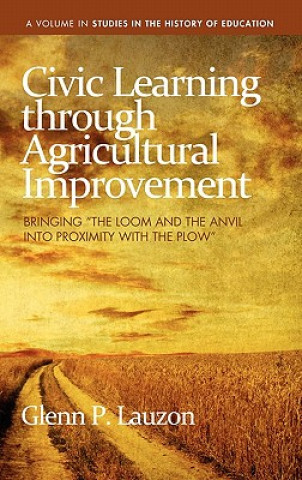
Kód: 08811329
Civic Learning Through Agricultural Improvement
Autor Glenn P. Lauzon
A volume in Studies in the History of Education Series Editor: Karen L. Riley, Auburn University at Montgomery How do people use education to respond to change? How do people learn what is expected of "go ... celý popis
- Jazyk:
 Angličtina
Angličtina - Väzba: Pevná
- Počet strán: 260
Nakladateľ: Information Age Publishing, 2010
- Viac informácií o knihe

Mohlo by sa vám tiež páčiť
-

Laura, a Tale. in Verse.
22.48 € -

New Knebworth Edition.
34.34 € -

Space, Science & Other Things - Elementary (K-8) Interactive Space Show
33.32 € -

Evangeline Drowning
19.93 € -

Giuseppe's Recipes
26.06 € -

Golf y Su P... Madre!
18.70 €
Darujte túto knihu ešte dnes
- Objednajte knihu a vyberte Zaslať ako darček.
- Obratom obdržíte darovací poukaz na knihu, ktorý môžete ihneď odovzdať obdarovanému.
- Knihu zašleme na adresu obdarovaného, o nič sa nestaráte.
Viac informácií o knihe Civic Learning Through Agricultural Improvement
Nákupom získate 330 bodov
 Anotácia knihy
Anotácia knihy
A volume in Studies in the History of Education Series Editor: Karen L. Riley, Auburn University at Montgomery How do people use education to respond to change? How do people learn what is expected of "good citizens" in their communities? These questions have long concerned educational historians, civic educators, and social scientists. In recent years, they have captured national attention through high-profile education reform proposals and civic initiatives. The historian who reviews the relevant literature, however, will discover something odd: most of it focuses on schooling, despite the fact that, prior to the middle of the twentieth century, formal schooling played only a small (but significant) part in most people's lives. What other educational forces and institutions bring civic ideals to bear upon minds and hearts? This question is rarely raised. At issue is a conceptual problem: we, today, tend to equate "education" with "schooling." Do county fairs and farmers' associations have anything to do with civic education? Drawing insights from debates at the time of the "founding" of the history of education as a branch of modern scholarship, this author asserts that they do. Using the life of county fairs, farmers' associations, and farmers' institutes as its central thread, this book explores how prominent town-dwellers and leading farmers tried to use agricultural improvement to grow towns and to shape civic sensibilities in the rural Midwest. Promoting economic development was the foremost concern, but the efforts taught farmers much about their "place" as "good citizens" of industrializing communities. As such, this study yields insights into how rural people of the nineteenth century came to accept the ideal that "town" and "country" were interdependent parts of the same community. In doing so, it reminds educators and historians that much education and learning - particularly of the civic sort - takes place beyond the schoolhouse.
 Parametre knihy
Parametre knihy
Zaradenie knihy Knihy po anglicky Society & social sciences Sociology & anthropology Sociology
133.31 €
- Celý názov: Civic Learning Through Agricultural Improvement
- Podnázov: Bringing "the Loom and the Anvil into Proximity with the Plow" (HC)
- Autor: Glenn P. Lauzon
- Jazyk:
 Angličtina
Angličtina - Väzba: Pevná
- Počet strán: 260
- EAN: 9781617351488
- ISBN: 9781617351488
- ID: 08811329
- Nakladateľ: Information Age Publishing
- Hmotnosť: 542 g
- Rozmery: 234 × 156 × 15 mm
- Dátum vydania: 23. November 2010
Obľúbené z iného súdka
-

Sex at Dawn
13.69 € -21 % -

Death and the Afterlife
18.80 € -22 % -

Cartoon Guide to Statistics
19.42 € -16 % -

Why Love Hurts - A Sociological Explanation
18.60 € -

Past Mortems
10.11 € -23 % -

Basic and Advanced Focus Groups
43.03 € -9 % -

Fair Play Deck
20.44 € -9 % -

Intimate Communion
13.79 € -20 % -

Tragedy and Hope
44.36 € -

Small Is Beautiful
11.13 € -23 % -

More Than Two
25.96 € -17 % -
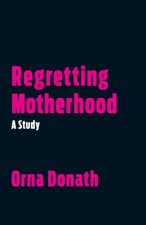
Regretting Motherhood
15.73 € -9 % -

Social Intelligence
14.41 € -23 % -

True Believer
14.20 € -23 % -
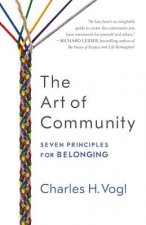
Art of Community: Seven Principles for Belonging
19.21 € -21 % -

NINETY PERCENT OF EVERYTHING
18.60 € -6 % -
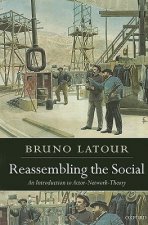
Reassembling the Social
53.26 € -

Family and Civilization
22.89 € -6 % -

Book of Tea
10.11 € -23 % -
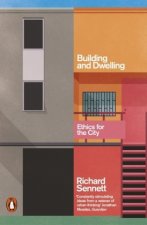
Building and Dwelling
14.61 € -24 % -

Constructing Grounded Theory
52.44 € -

Surrendered Wife
11.13 € -23 % -

Of Woman Born
15.22 € -16 % -

Cruel Optimism
27.29 € -6 % -

Death and the Afterlife
31.99 € -

What Kinship Is-And Is Not
19.42 € -17 % -
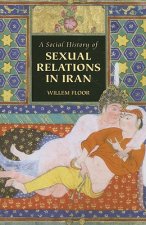
Social History of Sexual Relations in Iran
60.11 € -

Post-Adoption Blues
18.60 € -

Dissecting the Danchi
151.92 € -

Birth Of A Mother
22.38 € -

New Old Fashioned Ways
17.06 € -2 % -

Platform Society
40.58 € -

Death Tourism
40.68 € -

Secret Meaning of Money - How to Prevent Financial Problems from Destroying Our Most Intimate Relationships
41.40 € -

Braving the Wilderness
8.68 € -21 % -

Eroticism
12.26 € -23 % -

Marriage, a History
18.50 € -13 % -

Bushido the Soul of Japan
11.44 € -

Intercourse
15.53 € -23 % -

Ideology and Utopia
19.11 € -

Population Control
14.41 € -23 % -

Class Ceiling
13.08 € -10 % -

Chrysanthemum and the Sword
18.90 € -

Smoke Gets in Your Eyes
10.21 € -24 % -
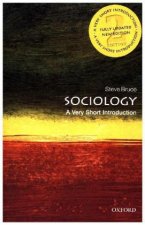
Sociology: A Very Short Introduction
10.11 € -23 % -

Being Mortal
13.79 € -1 % -
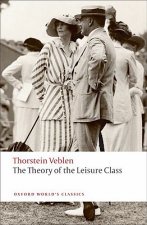
Theory of the Leisure Class
12.26 € -23 % -
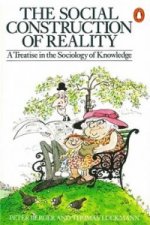
Social Construction of Reality
12.26 € -23 % -

Bushido: The Soul Of Japan
17.17 € -16 %
Osobný odber Bratislava a 2642 dalších
Copyright ©2008-24 najlacnejsie-knihy.sk Všetky práva vyhradenéSúkromieCookies



 21 miliónov titulov
21 miliónov titulov Vrátenie do mesiaca
Vrátenie do mesiaca 02/210 210 99 (8-15.30h)
02/210 210 99 (8-15.30h)